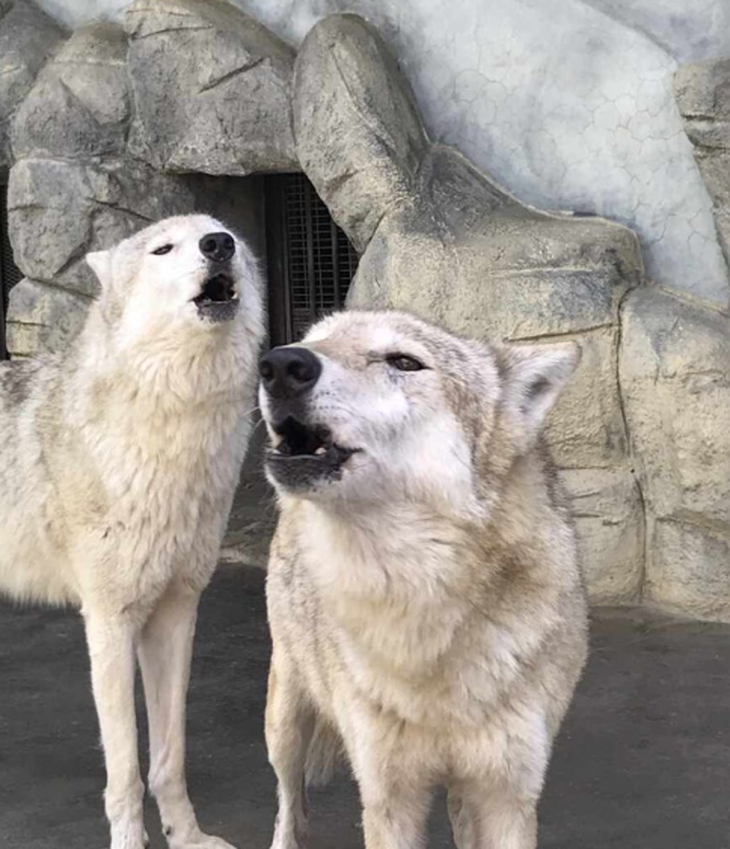
Tibetan wolves in an enclosure at Tennoji Zoo in Osaka - Photo: Tennoji Zoo
The South China Morning Post (SCMP) on June 3 quoted the Japan Wolf Association (JWA) as saying that they are considering reintroducing wolves into the wild with the aim of restoring ecological order in rural areas, and contributing to reducing damage to the agricultural sector caused by deer, wild boars and monkeys.
It is understood that the conservation group is preparing small-scale wolf reintroduction trials in remote areas to avoid endangering the community.
According to Mr. Kunihiko Otsuki, president of JWA, reintroducing this top predator in the food chain is the right direction: "Wolves became extinct in Japan more than 100 years ago, but today deer are becoming a serious problem for many farming groups across the country. We believe that reintroduction of wolves will help bring nature back into balance."
Not only deer, farmers in Japan are also suffering from wild monkeys and boars destroying crops, causing heavy damage to the agricultural industry up to nearly 10 billion yen each year. Not only that, they also cause traffic accidents and sometimes attack humans.
JWA has proposed importing wolves from China to release into the wild on islands such as Honshu, Shikoku and Kyushu, and releasing cold-resistant wolf breeds from Siberia onto the large northern island of Hokkaido - an ideal location topographically and biologically.
Mr Otsuki asserted that the risk of wolf attacks on humans is very low, based on experience in Europe and North America. He also noted that while many people fear wolves, bear attacks in remote areas are actually more common.
While understanding the JWA’s arguments, Dr. Mariko Abe of the Japan Society for Nature Conservation expressed her doubts, citing the 1979 failure of Japan to release mongooses on Amami Oshima Island to eradicate venomous snakes.
Instead of just hunting snakes, the mongooses also attacked endemic species such as the Amami rabbit and Ishikawa frog, driving them to the brink of extinction. The government then had to eradicate all mongooses, a campaign that will last until 2024.
“Under the current circumstances, I can’t say this is a good idea,” Ms Abe said. “There have been attempts to reintroduce other native animals into areas where they were once wiped out, and the results have not been good.
If the same thing happens to wolves, there is no guarantee that they will only hunt deer and wild boar, as there have been cases of wolves attacking humans."
Source: https://tuoitre.vn/nhat-ban-xem-xet-tai-tha-soi-de-khoi-phuc-can-bang-sinh-thai-20250603162135511.htm





























![[Photo] National Assembly Chairman attends the seminar "Building and operating an international financial center and recommendations for Vietnam"](https://vphoto.vietnam.vn/thumb/1200x675/vietnam/resource/IMAGE/2025/7/28/76393436936e457db31ec84433289f72)




































































Comment (0)